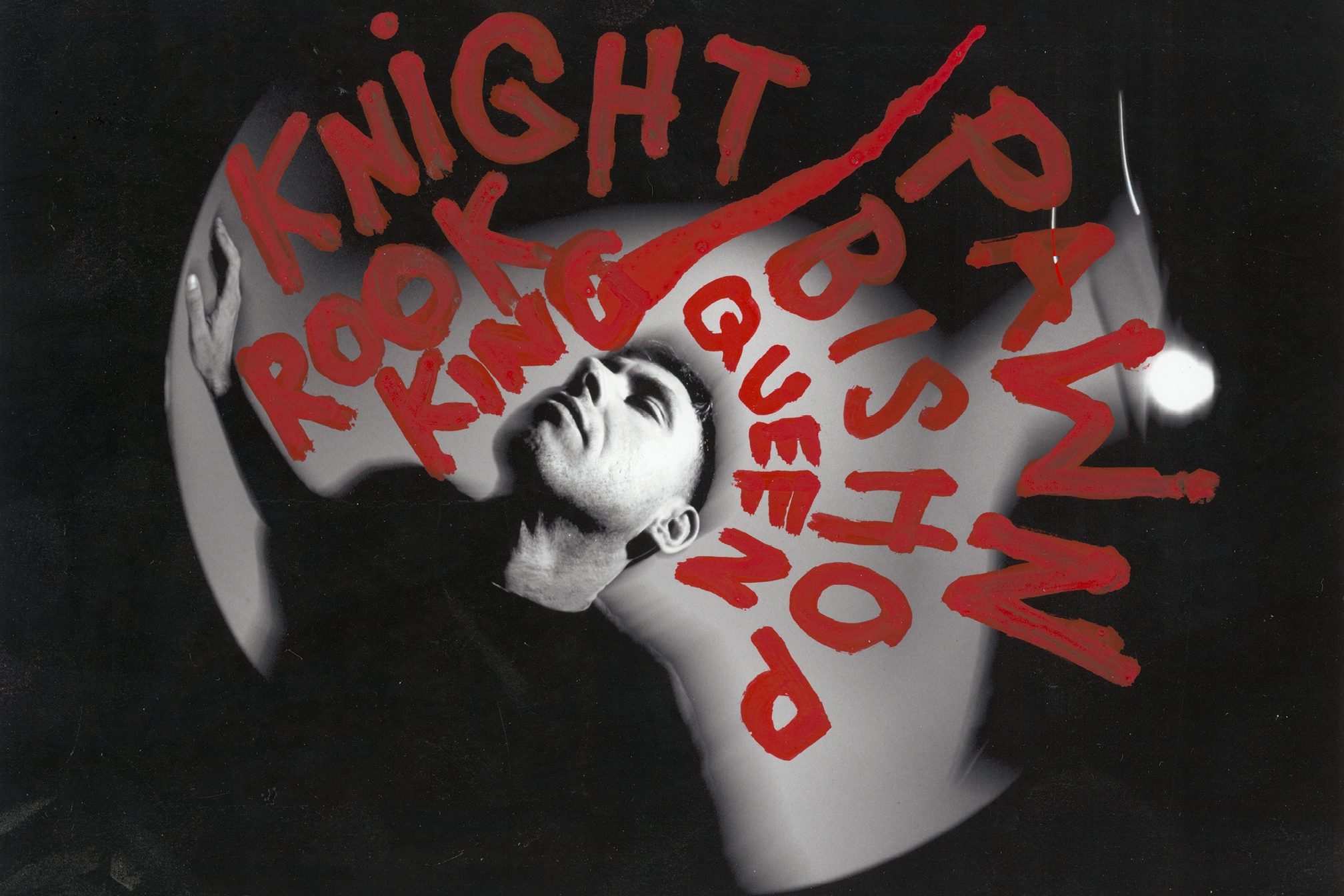 Features
Features
Hudson Mohawke's maximalist music creates sparks of joy in our dystopian world
Arielle Lana LeJarde speaks to Hudson Mohawke about duality in music, outlandish memes, and his wild new album ‘Cry Sugar’
The ancient Chinese philosophical concept of yin and yang theorises that all things exist as inseparable and contradictory, yet complementary, opposites. Duality can be traced throughout the artistic output of Hudson Mohawke, real name Ross Birchard who’s lovingly referred to as HudMo by die-hards, but it’s especially central to his latest album, ‘Cry Sugar’.
As the record’s title suggests, ‘Cry Sugar’ reflects the idea that the sweetest moments sometimes come during our darkest times. Analogously, Birchard moved from the UK to Los Angeles right as Donald Trump was elected as President in 2016. “Even though I’ve been coming to LA for years and years and years, I was thrust into this new environment where everything’s fucked,” the Glasgow native recalls. “I think that [the concept of ‘Cry Sugar’ comes from the] technicolour overwhelming shit combined with the disparity between extreme wealth and extreme poverty in this real Sodom and Gomorrah situation.
“There’s definitely a bit of escapism in it,” he continues. “But there’s also trying to find little sparks of joy amongst the general feeling that the world is just blowing up in every fucking direction.”
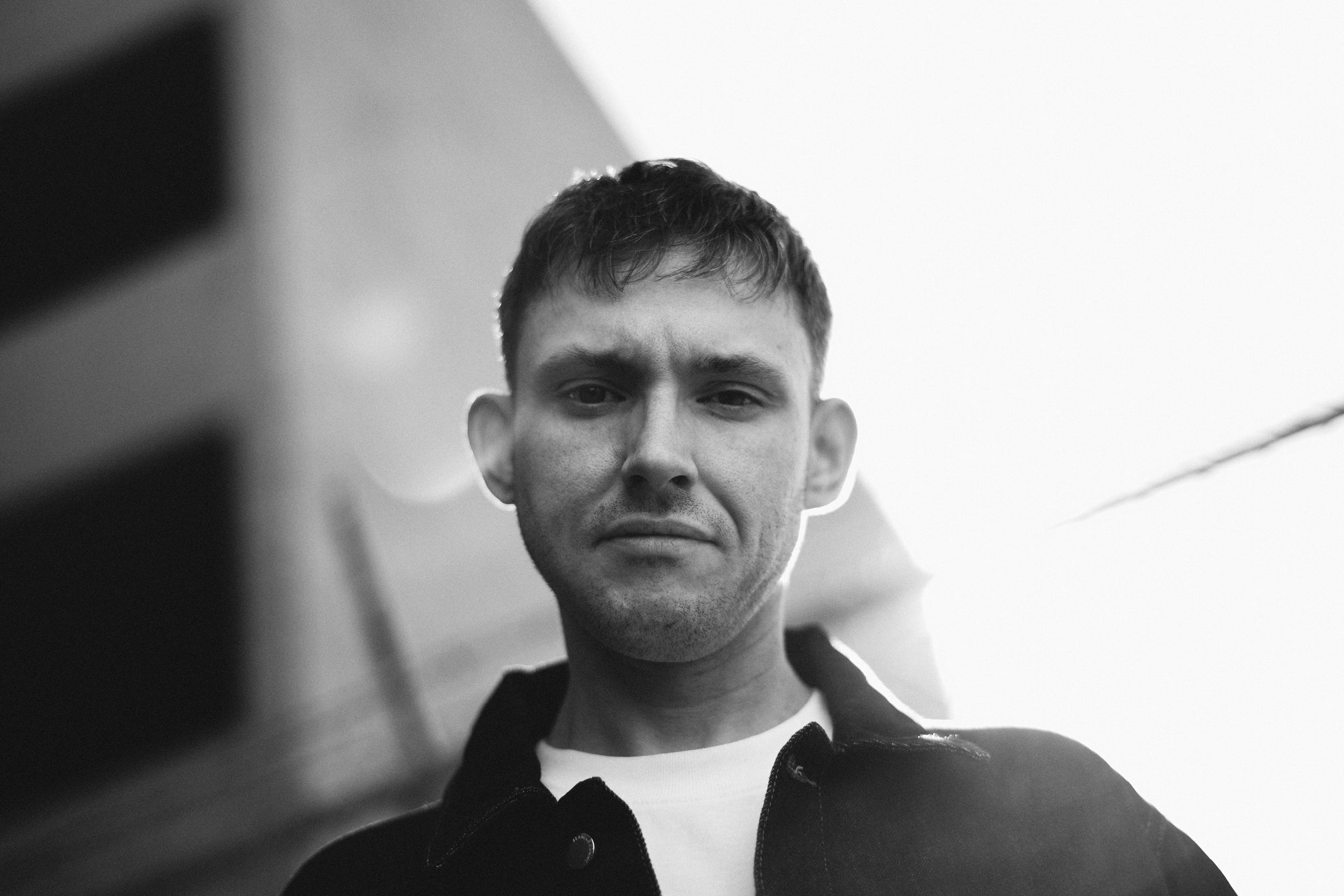
As if mimicking the album, our interview also bursts into ephemeral moments of bliss amid lengthy discussions of tough topics. At one point, we pivot sharply from talking about our stints in rehab to bonding over our love of memes, pausing talking altogether to jointly watch a YouTube video from a late ‘90s British sketch comedy TV series called Big Train, a show that Birchard claims encapsulates his nonsensical and outlandish sense of humour.
Read this next: The Cover Mix: Hudson Mohawke
Equally, he has been embraced within the meme sphere. A popular Instagram page @bedroomdjfantasies recently DMed me to praise the self-proclaimed meme aficionado, saying, “Huds is my guy. Been one of my OG followers!” Then, serendipitously, one month after the new album’s release, a since-deleted Reddit post went viral for mentioning HudMo’s 11-year-old track ‘Cbat’. The author provided a tell-all on how they had sex to the disjointed rhythm of the song for two years, which their partner eventually revealed to be a turn off. This sparked a ‘Cbat’ TikTok trend with more than 200,000 videos, featuring people amused or horrified by the post humping to the song’s frenetic, boisterous beat.

“I don't think that the best fucking strategist in the world could have pulled that off,” says Birchard, who played abstract strategy board Chess on his phone throughout the cover shoot for this feature, when we catch up later in a phone call. “It was independently viral on every different social media platform, which is unheard of. Even if you put $5 million into [advertising], I don’t think you could pull that off. It's just one of these random fluke things. Because it was weirdly funny and-on brand, you just kind of roll with it. When does that opportunity ever present itself?” And playing along is exactly what HudMo is doing. His social media bios now read: “‘Cry Sugar’ is better for sex.” When asked what’s the best song in the album for bedroom activities, he jokingly responds with the equally unruly ‘KPIPE’.
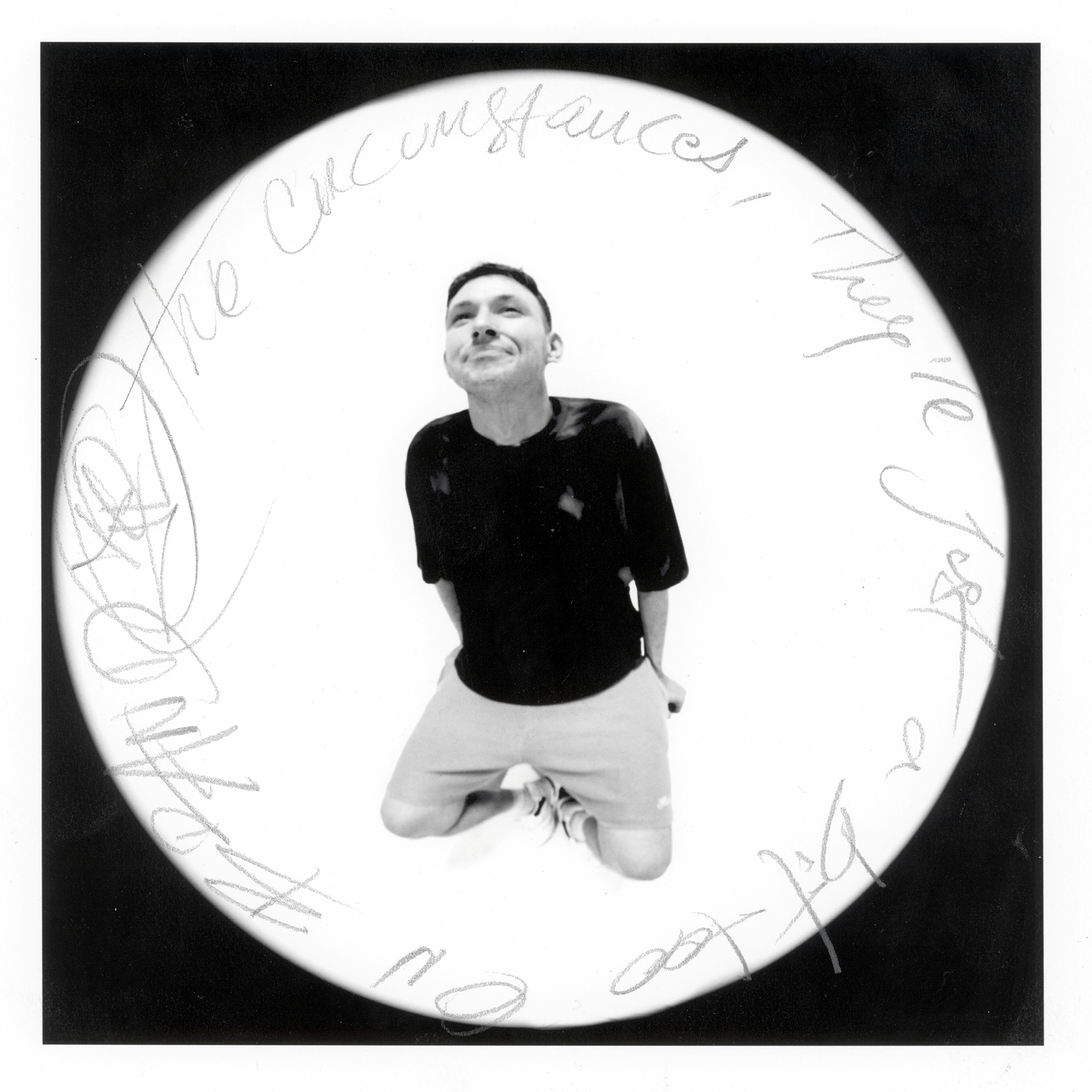
In our initial interview, Birchard sits in his living room while we talk over Zoom about his latest album, a cigarette in one hand and a coffee in the other. Recently inspired by a documentary on the late Vangelis, who famously said “I am merely a conduit, a kind of big hairy tool. I am just a plastic funnel connected to a Moog,” Birchard also notes the importance of making himself available as a vessel for art.
But for years before lockdown, the reclusive artist spent time away from the spotlight. Whether he was prioritizing his mental and physical health, resting from constant touring, or focusing on his solo work after taking a lengthy hiatus from TNGHT, his collaboration with Canadian producer Lunice, Birchard was out of the public eye for almost half a decade. But that didn’t mean he was out of the studio. The time was spent producing records for some of hip hop’s most high-profile acts, including Kanye West, Drake, Pusha T, and Future.
Read this next: 20 East Coast Hip Hop Bangers That To Go Off In The Club
In 2020, Hudson Mohawke soft launched his return to the forefront, releasing three archival tapes on Warp Records: ‘B.B.H.E.’, ‘Poom Gems’, and ‘Airborne Lead’. As much as it was a way for the beatmaker to give back to the fans who’ve been non-stop asking for the tracks on Reddit or posting rips of the tunes on YouTube—“Stop fucking asking me for this fucking song from eight years ago!” he remembers thinking—it was also a way to wipe the slate clean and start fresh for his newest project.
Now, ‘Cry Sugar’ arrives as his third solo studio album, seven years after the release of ‘Lantern’ and 13 years on from his debut ‘Butter’. Nearly two years in the making, it’s his most ambitious and larger than life release yet, with the producer pouring his chaotic ideas and artistic inclinations into an hour-long sensory overload. “I feel like I have to dial into a certain part of my psyche to make a full-length album and sometimes I just don’t want to go there,” he laughs. “It can be very stressful and very emotional.”
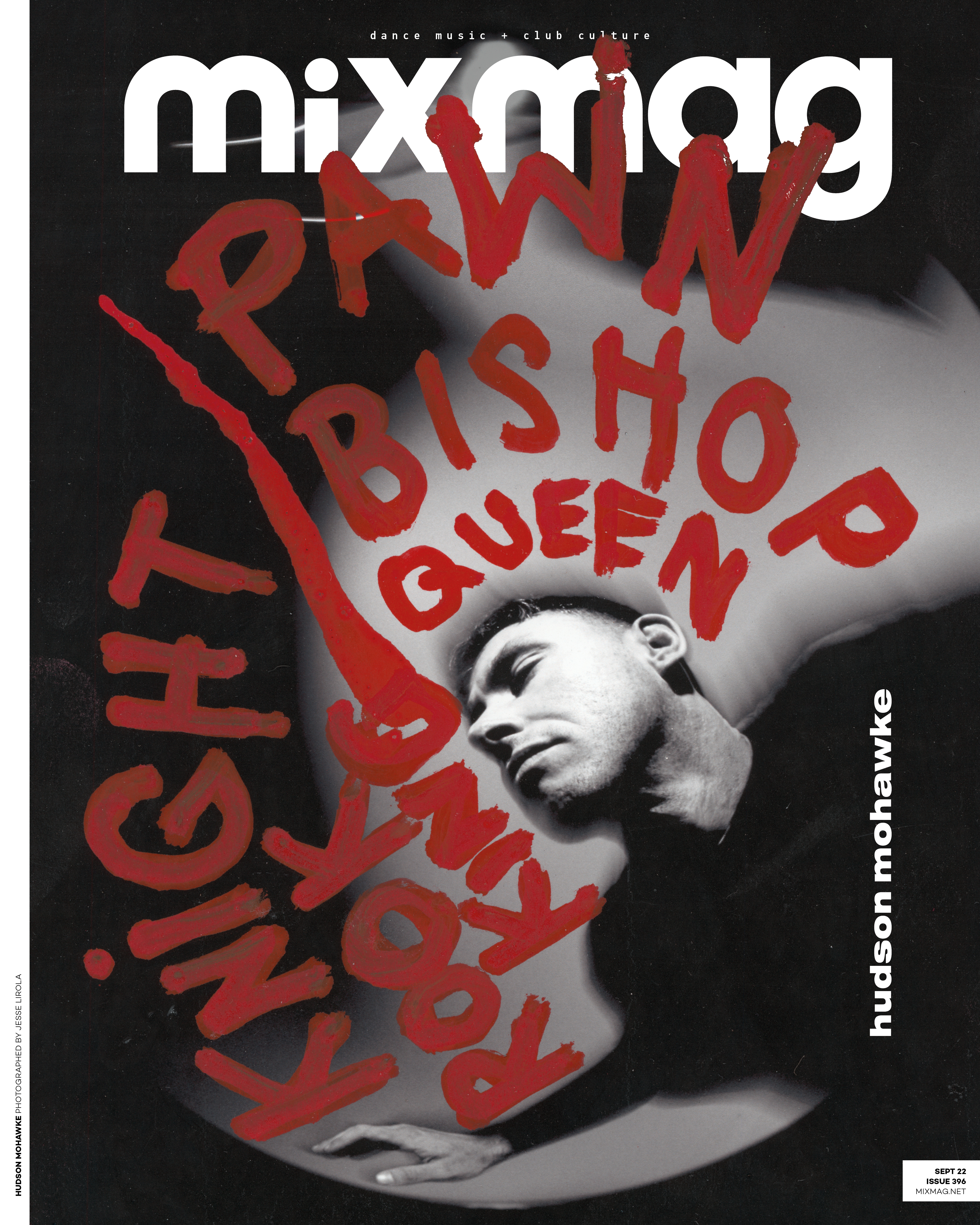
For the most part, the album is ultra-high energy, as you would expect from someone whose love for music developed from discovering the ecstatic, lightspeed rave genre happy hardcore. But the record also includes songs like ‘Lonely Days’ that evokes a visceral feeling of melancholy and longing through its stirring synths and lucid lyricism. When I share that the song is my favourite because it made me cry, he seems humbled. “Caroline Polachek said that last week as well about a different song,” he reveals. “That’s what happens to me when I’m making it. And if it elicits that emotion in someone else, then I’ve done my job expressing myself.”
For Birchard, his Vangelian-inspired ideal of being available to create art is the only way to be an artist, and sometimes that means going into the parts of your brain that aren’t very pleasant to revisit. But his story doesn’t solely revolve around his mental health struggles or even his decision to go sober during lockdown, although those factors did influence the making of this album. “I’m totally fine talking about that aspect of my life, I’m just always so turned off about people pushing a mental health narrative. Fuckin’ almost everyone is [depressed]. It’s not a unique situation that you’re troubled.”
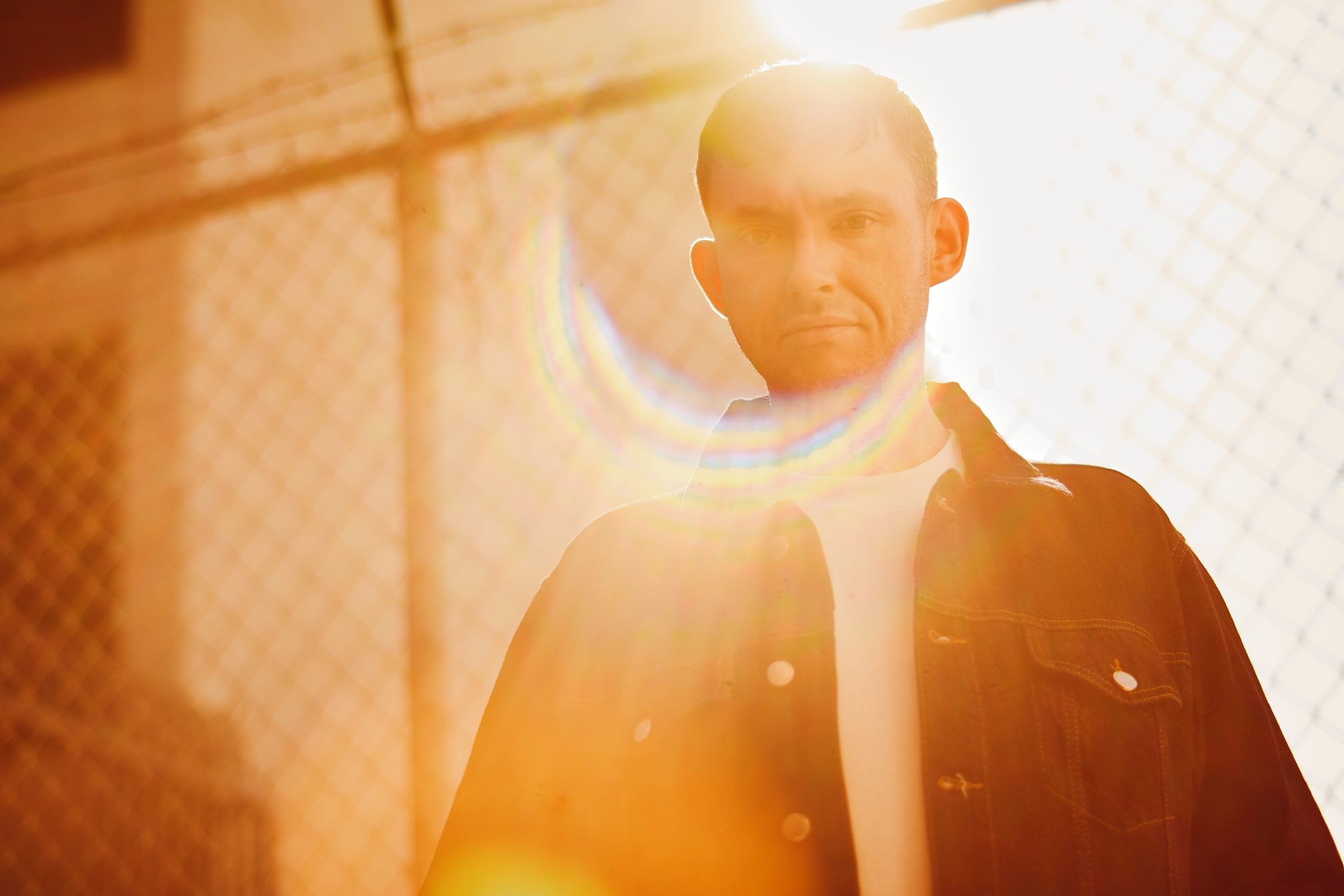
After years of being enclosed by the UK’s dark and broody club culture, Hudson Mohawke began to find it repetitive and dull. He needs to feel excited to work on his craft, and what excites him most is hearing something he’s never heard before. Pining for a change of scenery, he moved to the US, satisfying his need for escapism, as well as indulging in the LA decadence that ultimately shaped his maximalist sonic approach and commentary on late-stage capitalism in ‘Cry Sugar.’
The record actually comes at a perfect time, as nightlife has officially come back into full swing, with little-to-no live event cancellations, even as COVID-19 and Monkeypox cases rise and the economy plummets. “It’s probably a survival tactic,” he says when asked about our pre-emptive celebrations of the pandemic being ‘over.’ “I don’t think we’ve fully processed what has just happened and what is happening, but there’s definitely collective trauma from the last several years.”
Spanning 19 tracks ranging anywhere from 40-seconds to over 6-minutes long, ‘Cry Sugar’ explores the dichotomy between chaos and comfort. HudMo previewed the project with three singles that embody this duality in ‘Bicstan’, ‘Stump’, and ‘Dance Forever’. “I felt like they were the best introductions to the sonic palette of the project,” he says, also noting his appreciation of how the songs highlight the European rave scene’s influence on the album.

With ‘Cry Sugar’ coming out seven years after ‘Lantern,’ he also admits this is also the first time he’s done a full-scale release in the digital streaming era. “I don’t really know where my music fits amongst that, in terms of what people only hear because [that music is] on a fuckin’ playlist, so part of it was also throwing caution to the wind. But that’s part of the fun as well.
“The people who know what they’re doing are the people who just turn out the same shit,” he quips.
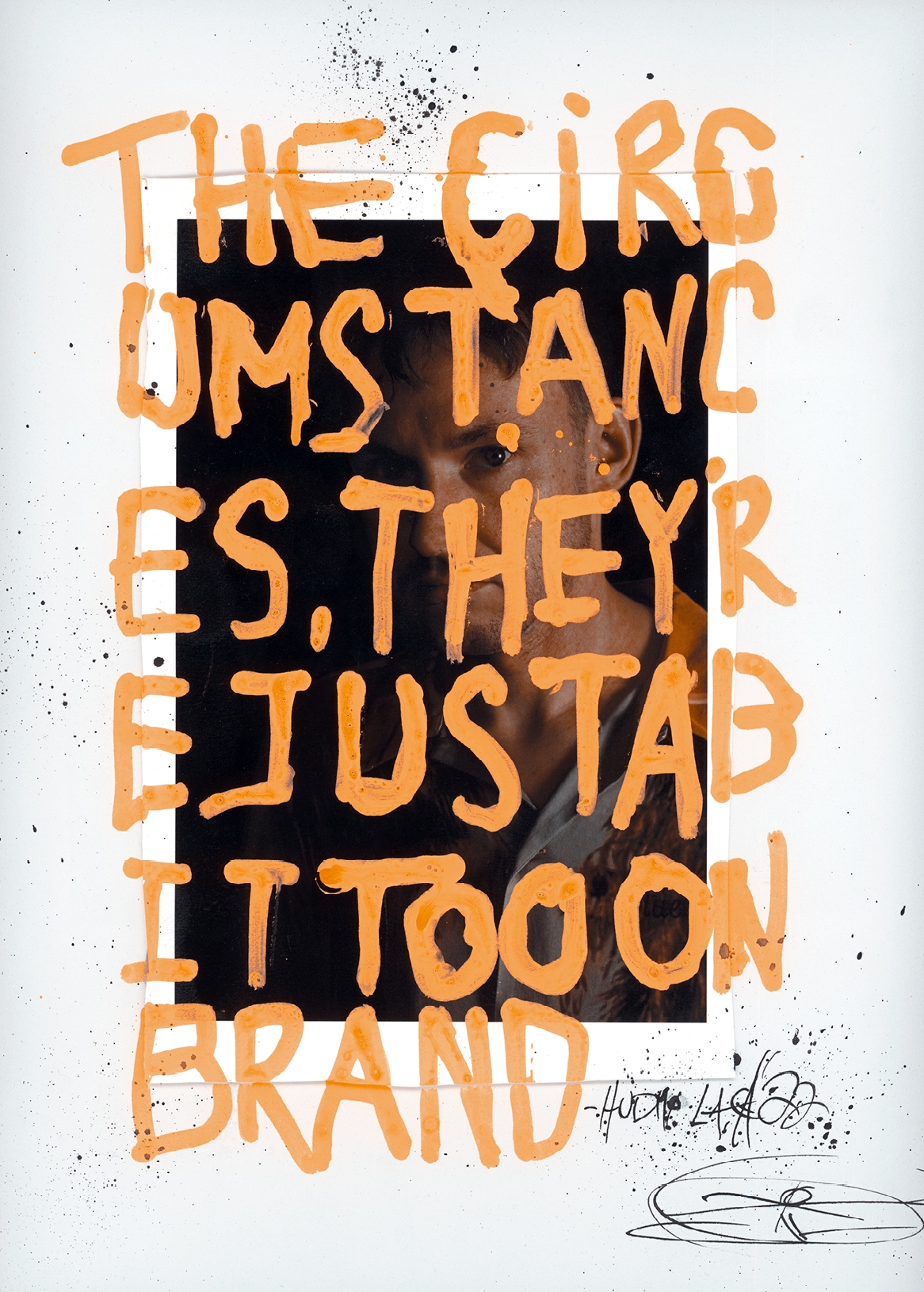
With a one-month lapse between our two calls, Birchard has been able to see the acclaim for the fruits of his labour. “I've been pretty happy with it. I mean, it's still not a record that's for everyone, but I'm kind of surprised by how well it's done.” For him, not knowing where something fits continues to be something he’s proud of - it shows that he’s still evolving as an artist. “I think if you're putting out a record and you're not nervous about it, then you're probably just repeating yourself or resting on your laurels.”
He’s also grateful that the praise is coming from all corners of the music industry, even garnering attention from people like Trent Reznor of Nine Inch Nails, who have been using ‘Cry Sugar’ tracks as pre-show music on their tour.” “It's nice when things pop up in places that aren't just the typical spheres my music normally appears in,” he notes.
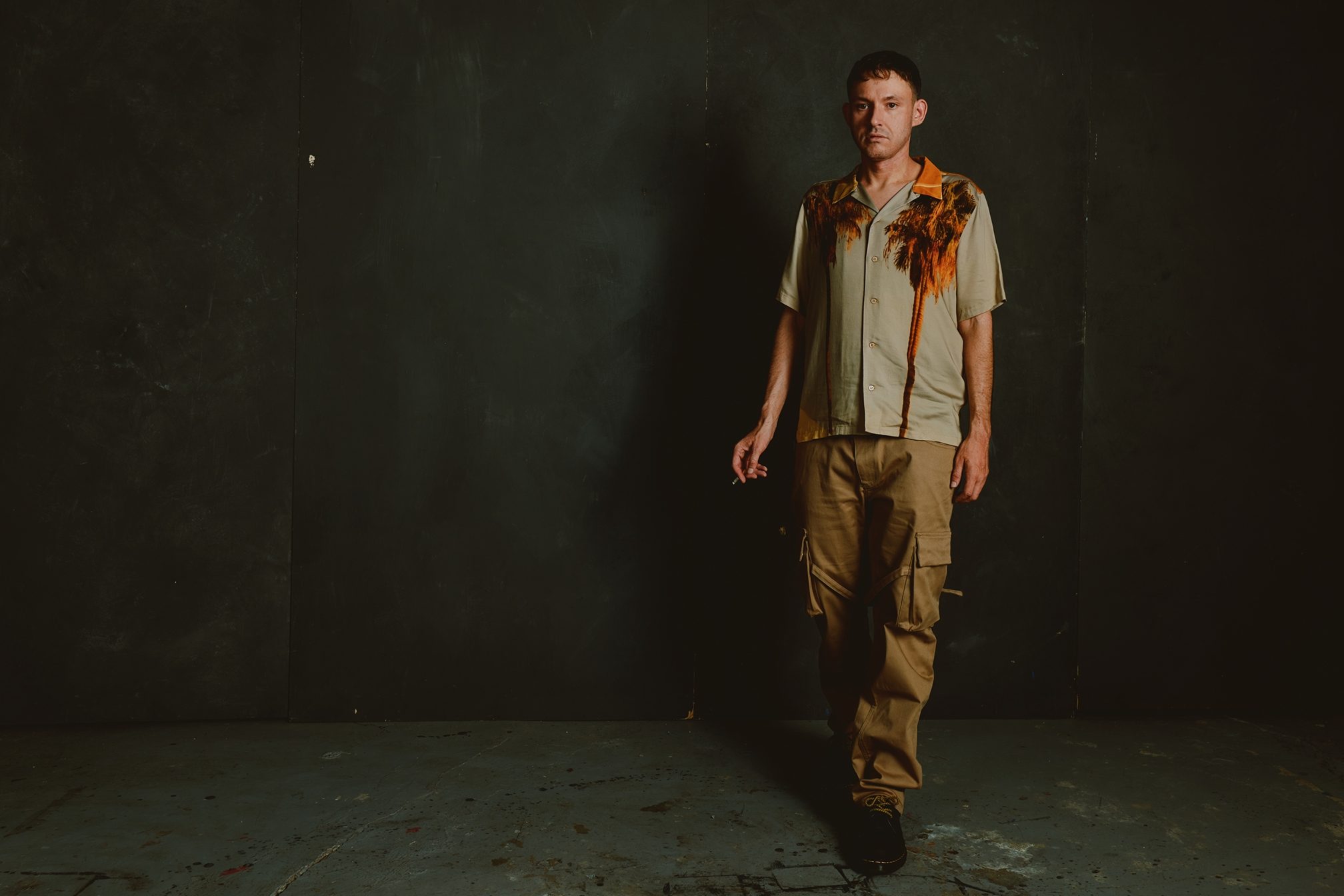
People have attempted to box in Hudson Mohawke throughout his whole career. The rave music-loving hip hop head has even been credited for “inventing” electronic trap music. “We never got comfortable with that phrasing,” he states. He fondly recalls his TNGHT partner, Lunice, starting off his live sets by burning incense in a thurible and satirically paying homage to the death of trap by playing Darth Vader’s theme tune, ‘The Imperial March’ from Star Wars.
“A bunch of us like Lunice, Rustie, S-Type, Baauer—I’m definitely forgetting people—had a habit of obsessively sharing instrumentals of rap stuff that we really liked and just nerding out over the production.” The group of like-minded producers made a a group chat where they shared their “weird” hip hop productions that felt too off-kilter for the rap scene at the time. Birchard says, to his recollection, none of those tracks have been released to the public, but that does trace back TNGHT’s origins. “We really liked them just as instrumentals. Like, ‘Here’s a bunch of rap beats that don’t have rappers on them.’ It wasn’t anything beyond that, but then it sort of grew into its own thing.” He notes that when people started calling it “trap”, the crew was always apprehensive about it, acknowledging that trap music is the Atlanta-cultivated rap subgenre. “When it started to separate from the rap influence and started going into the EDM variant, it felt extremely white American. I was always like, ‘you lost something in translation here.’”

While dance music has always been ingrained hip hop and pop music, A-list artists like Drake and Beyoncé dipping their toes into the genre has recently put more of a mainstream spotlight on our relatively niche scene. When asked what massive artists can do to bring attention back to the Black, queer history of dance music when making it, Birchard answers, “I’m in two minds whether that’s their responsibility or not.” For him, the artist’s responsibility is much more simple: “Find a way to be available. That’s the most simmered version of it. Be in a state that allows you to create things that bring you joy and hopefully bring joy to other people.”
He also mentions: “It’s sort of interesting and fun to see America rediscovering house and techno music, even though the inception of that kind of music came from America.” While the mainstream acts have been criticized in some corners for a perceived voyeuristic approach to dance music, HudMo thinks, “it’s great because it’s more people listening to dance music.”
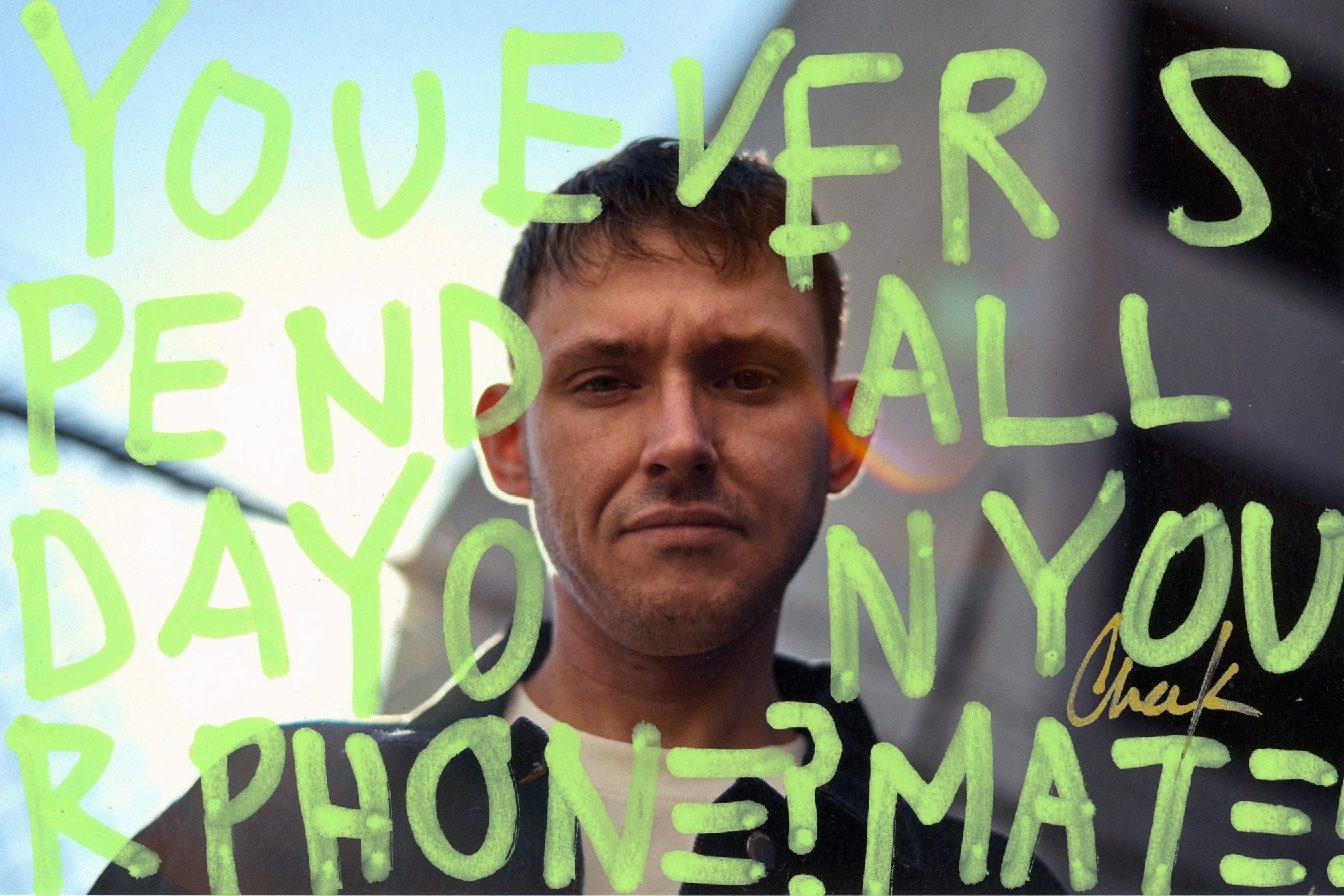
His reverence for hip hop and dance music’s rich history has not only helped him become one of the greatest innovators in music, but it’s also why he’s able to transition from dance music to hip hop and back, seamlessly. Surprisingly, HudMo’s father’s short-lived rap career wasn’t the starting point for his love of hip hop, but it can instead be attributed to his early days digging into the samples of happy hardcore records. At the time the genre was called bouncy tech and comprised sped-up drum breaks, rap songs, and DJ Scratch turntable records. Then, when Birchard got into turntablism himself, he started aligning with East Coast hip hop. “I really just love DJ Premier and Pete Rock and all that kind of stuff. That was just like my favourite fucking shit.”
Similar to how rising rappers will hand out their mixtapes on the busy streets of Times Square, as a preteen, Birchard put together happy hardcore mixes and sold them around his local playgrounds. He even handmade the cover artwork, cutting out snippets from various magazines, photocopying them, and gluing them to the front of the tapes.
Read this next: An oral history: A-Trak's journey with turntables
Although he made his presence known online with sites like MySpace and SoundCloud, the producer recognises the value of physical art. “It’s a different experience to physically engage with a piece of art in your hand. I think you’re engaging a different part of your mind, subconsciously. You just have a different reaction to physically holding something.” In a time period where the world lived in isolation for almost two years, and the music and live events industry moved to digital-only, it became clear that we take the physical experience for granted. HudMo recalls a conversation he had in Glasgow a month ago with people who were throwing their first club night and had cassette tapes made for it. “The feeling when you first hold a tape or CD or vinyl, or the first time you throw a party… you have a feeling of, like, this exists in real life.”
‘Cry Sugar’ takes us on a 62-minute-long hallucinogenic trip into our innermost emotions through frantically introspective, groove-coaxing tunes. It not only honours the inward work everyone did in solitude but also celebrates the reopening of our real-life experiences - in an era where everyone is just feening to dance again, and finally can.
Hudson Mohawke 'Cry Sugar' is out now, get it here
Arielle Lana LeJarde is a freelance writer, follow her on Twitter


